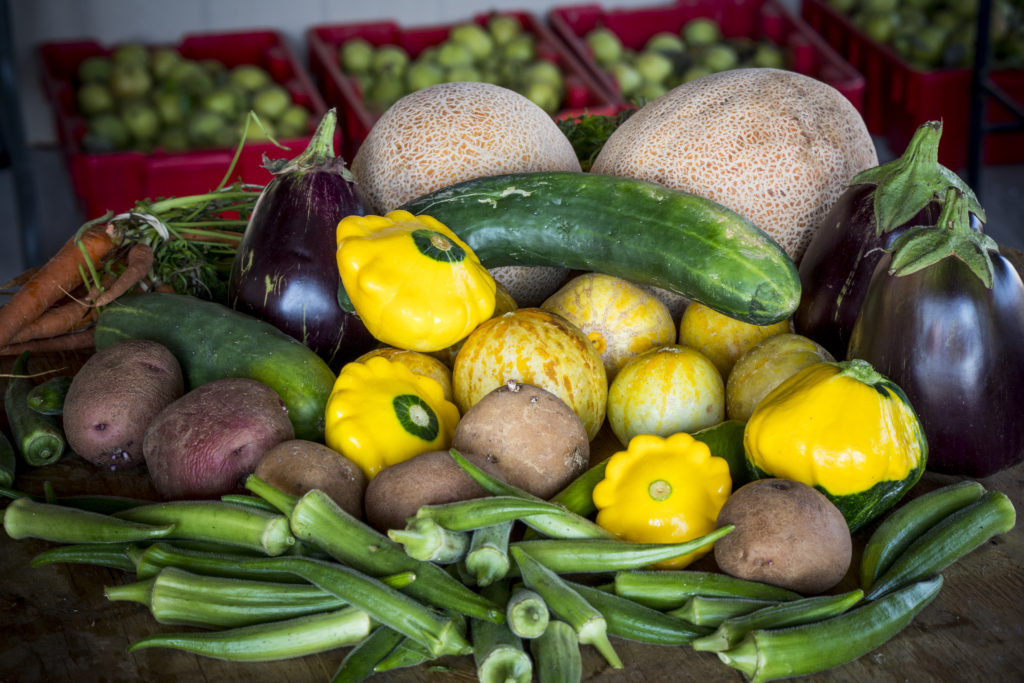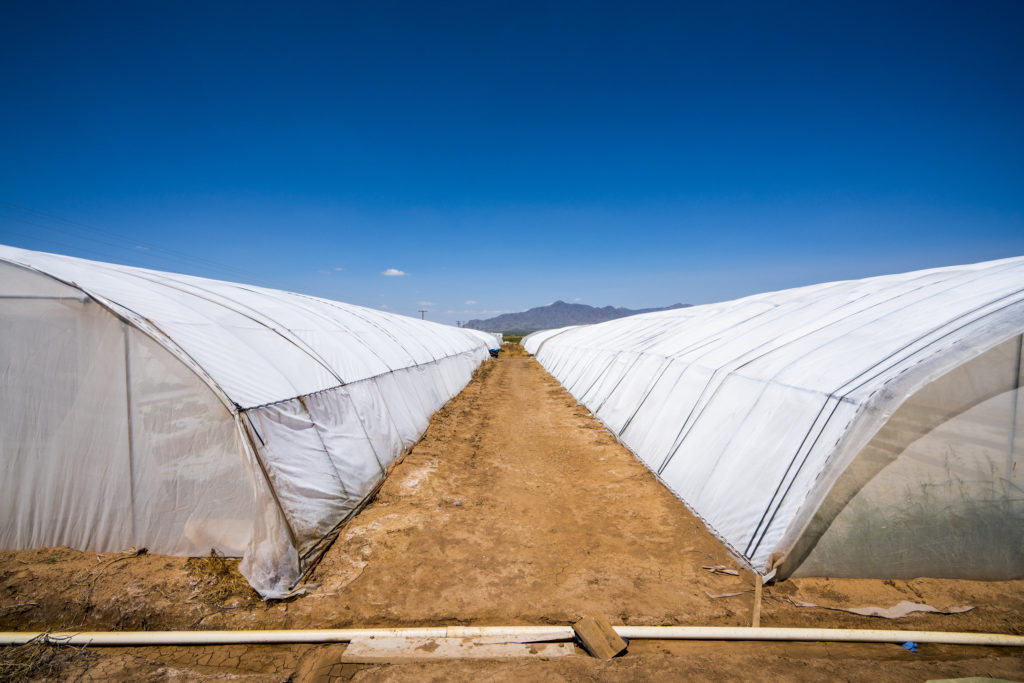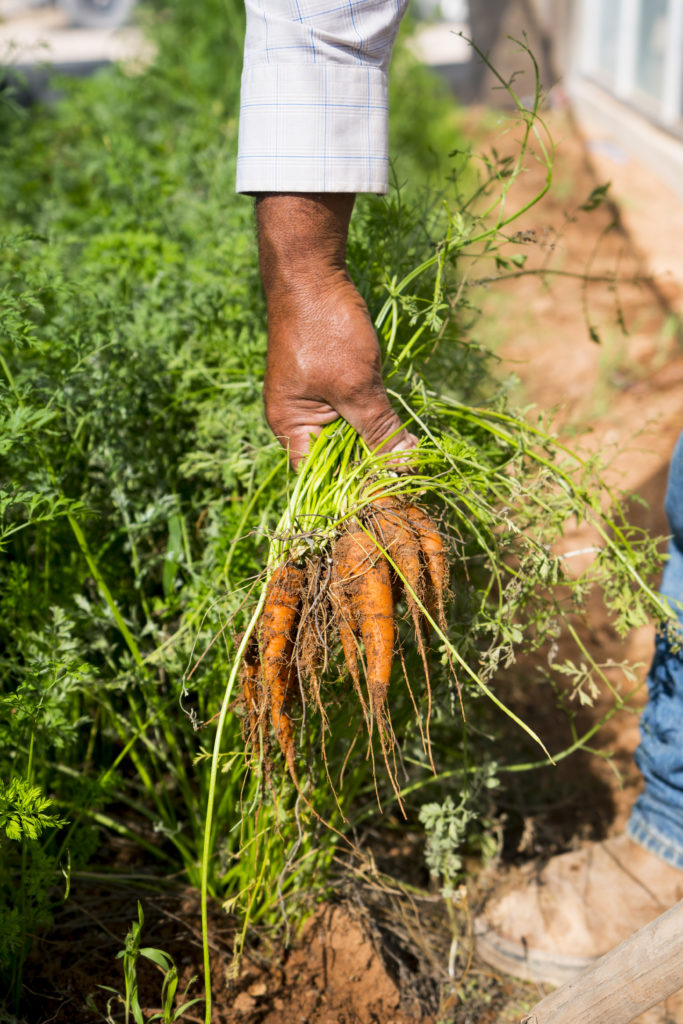Addressing Food System Insecurity and Inequity In The Frontier –
The globalization and vertical integration of food systems has greatly impacted frontier areas – perhaps more acutely than anywhere else. As global distributors took over, small farmers, once responsible for helping to feed their communities, were displaced. Jobs disappeared and local food production was all but eliminated. But when costs to serve remote areas rose (fuel, infrastructure), larger distributors abandoned frontier communities for business reasons. Local food production had been eliminated, and now the replacement was no longer able to serve remote areas, leaving many communities with broken food systems and no recourse.
When food systems become fractured, collaboration amongst stakeholders is reduced, and the system atrophies. Growth and sustainability diminish along with sales, community and ultimately, food security.
As a result, many remote area communities are food deserts, with what remains of frontier food systems operating in inefficient, non-coordinated ways that leave many behind. Namely:
- Local food buyers, especially low-income shoppers, due to lack of access and diminishing food pantry stores.
- Small operation food producers because access to sufficient market opportunities are often too distant to be profitable, and supportive infrastructure and services, such as logistics, market consultations, and food safety, no longer exist.
Solution – NCFC Food Hub Program Frameworks
Increased need for emergency and supplemental food through food pantries, a lack of healthy food access, and local job loss required sustainable and repeatable solutions. NCFC gathered resources and experts to help revitalize local frontier food systems through innovative programs and policy work allowing frontier communities to re-invest and strategically re-localize their food systems.

Food Hub is a program framework designed to revitalize the frontier food system through on the ground programming, market driven engagement with local food producers and innovative, direct work with food pantries, low-income food buyers and other stakeholders in the food system.
Designed to link disparate aspects of the food system, Food Hubs provide efficient integration for stakeholders across all sectors of food systems. Through various program arms, a Food Hub can link home gardeners, new and beginning farmers, experienced and business savvy producers, home shoppers, low income food buyers, schools, food pantries, and legislators. NCFC continues to actively engage in policy processes at state and national levels to fight for equity in frontier food systems.
Case Study:
Southwest New Mexico Food Hub
The Model – A Dual Purpose Hub designed for sustainability
The NCFC model is dual-purpose which means that the food hub supports both the local food economy and the food pantry system through a variety of services. This model was created after taking an extensive look at several food hubs operating around the country. In NM, we visited two existing food hubs in more populated regions comparing their market base, population, challenges, and community assets to our own in Southwest New Mexico. Finally, we met with regional food pantry coordinators who identified the desire and need to have access to local fresh produce and share existing facilities.

From the start we wanted to ensure the model would have the best chance of achieving self-sustainability so the services offered by the hub could continue post initial grant funding. Overall the model is designed to boost the local food economy, and the emergency and supplemental food systems using the same basic infrastructure, staff and equipment.
The goal is to achieve sustainability of the core food hub operations through market sales, which, with low overhead, is achievable within several years. Core operations include marketing, aggregating, storing and distribution. Other services included in the hub include grower training (food safety, business planning, etc.), improving grower capacity, and wrap-around services for recipients of supplemental food assistance. Some service activities will have to be subsidized by grant funding, but sufficient sales produce profit to reinvest in continued operation.

The sustained operation of food hub programs offer frontier community food systems a chance to thrive as farms reach business goals, values-driven food system operations become embedded and regular, long term access to enough fresh, healthy food is available to all. Such success also leads to having an informed, impactful voice in policy making circles.
Interested in a Food Hub program for your remote community?
NCFC is pleased to share the Food Hub framework model, specifically for frontier communities. Download our Food Hub Toolkit here .
Contact us to talk about your community needs and to discuss options. (Link)

